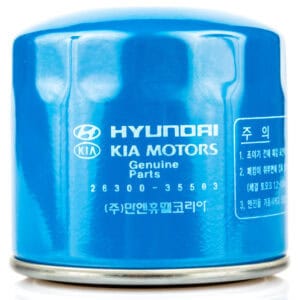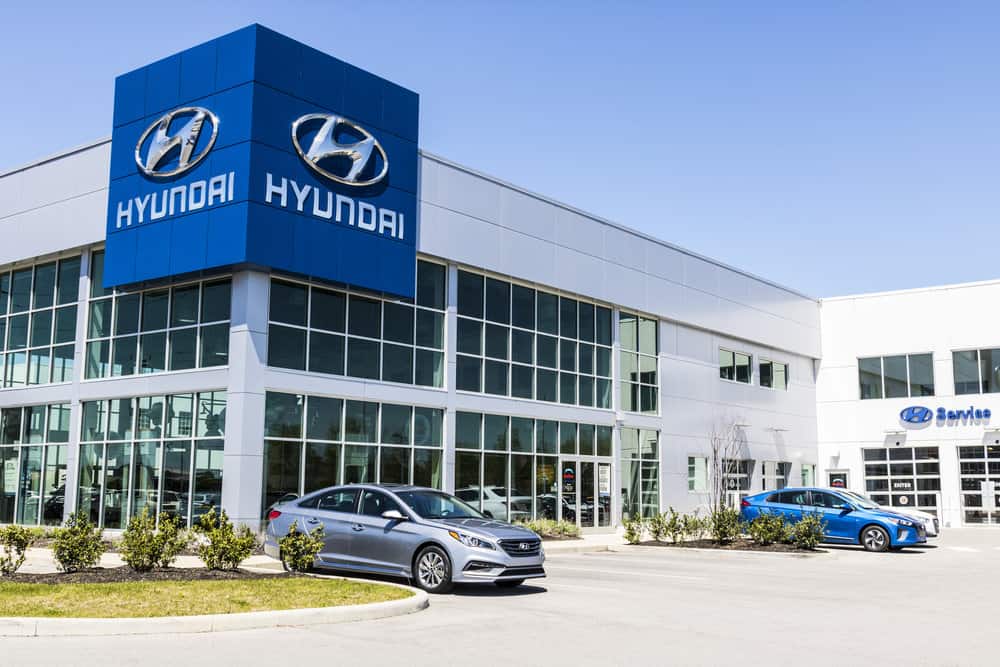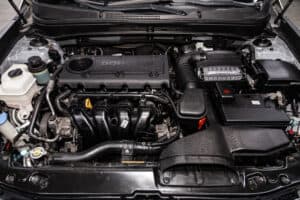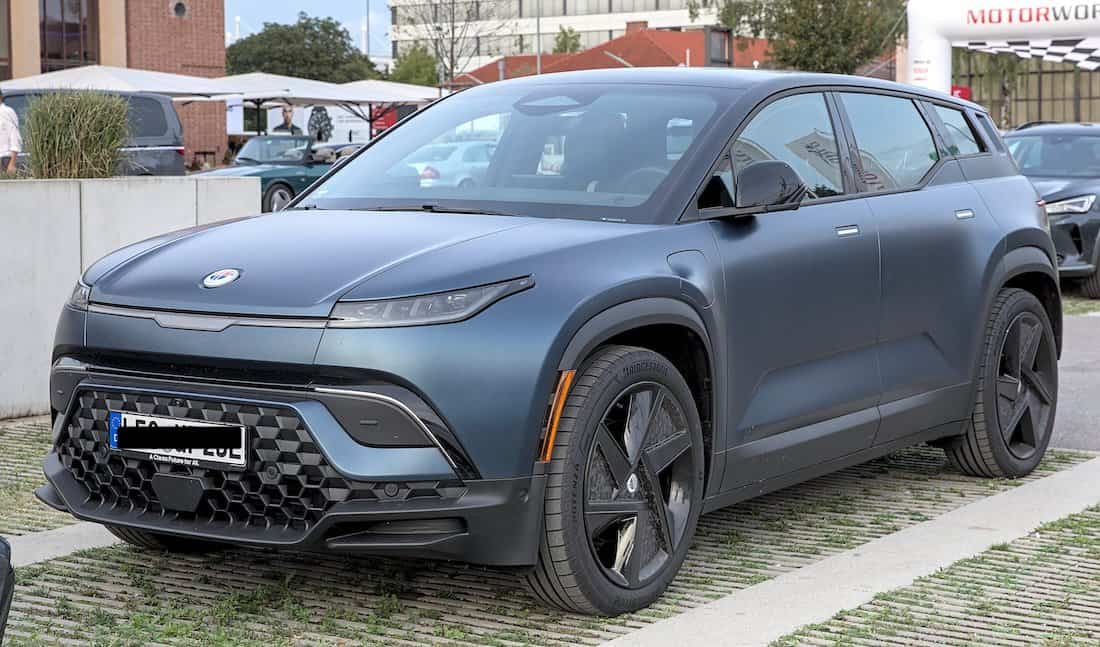Class action claims engine defect burns excessive oil
IMPORTANT UPDATE – CLASS CASE DISMISSED
A class action lawsuit on behalf of current and former purchasers and lessees of the Hyundai and Kia models listed below, which was originally filed in the United States District Court for the Central District of California on March 23, 2022, has been voluntarily dismissed by the plaintiffs.
Cho et al. v. Hyundai Motor Company, Ltd. et al. (case no. 8:22-cv-00448-SPG-KES) alleged certain models of Hyundai and Kia vehicles have defective engines (Nu, Gamma, Theta, Lambda, and Kappa engines) that burn excessive oil, stall, and eventually fail.
Consumers had filed the class action complaint on behalf of all purchasers or lessees of these vehicles manufactured by Hyundai that were sold or leased in the United States but voluntarily dismissed this class action based on a June 22, 2023, stipulation between the parties. Why the plaintiffs dismissed their class action lawsuit is unclear.
The affected Hyundai and Kia vehicles include:
- 2012-2020 Hyundai Elantra
- 2009–2018 Hyundai Genesis Coupe
- 2019-2021 Hyundai Kona
- 2020-2021 Hyundai Palisade
- 2010-2012 and 2015-2021 Hyundai Santa Fe
- 2009-2010 and 2015-2021 Hyundai Sonata
- 2011–2021 Hyundai Sonata Hybrid
- 2010-2013 and 2015-2021 Hyundai Tucson
- 2011-2021 Hyundai Veloster
- 2020-2021 Hyundai Venue 2
- 2010–2021 Kia Forte
- 2017-2020 Kia Niro
- 2011–2020 Kia Optima and Optima Hybrid
- 2012–2021 Kia Rio
- 2011–2020 Kia Sorento
- 2012–2021 Kia Soul
- 2011–2020 Kia Sportage
- 2018-2021 Kia Stinger
- 2022 Kia K5
Current and former owners or lessees of these vehicles should be aware that the California lemon law and other state and federal laws may force Hyundai and Kia to either buy the vehicle back or provide other significant compensation for those customers who experience this defect.
Under California’s lemon law, vehicles qualifying as lemons must be bought back. The refund could be as much as everything you paid for the car and everything you owe: monthly payments, down payments, tax, finance charges, license, and registration, and that can mean a large cash refund and payoff of your loan or lease. Depending on the circumstances, you could even qualify for two times your money back.
If your vehicle is still under a manufacturer’s warranty and a dealership cannot repair your car (after more than one attempt), you may have a lemon law claim for repurchase or replacement.
The Hyundai and Kia Oil Consumption Class Action
 What if you own one of these Hyundai or Kia vehicles and are experiencing oil consumption problems?
What if you own one of these Hyundai or Kia vehicles and are experiencing oil consumption problems?
Normally, in a class action lawsuit, if and when the class is certified by the court, the lawyers who bring the class action represent you unless or until you opt out of the class. The class action lawyers must mail notice of the certification order or the settlement terms and of your right to object to the settlement or opt out of the class by a specific date to be set by the court.
However, the class action lawsuit was recently voluntarily dismissed, meaning there will not be a settlement and you can only assert individual claims in a lawsuit that you file.
Particularly where you may have had multiple repair attempts, pursuing individual claims may provide an opportunity to receive a better recovery, understanding there is no guarantee they will get anything in a settlement.
What to do can be a complicated decision, as it depends on many factors, such as:
- How old is your car?
- Have you had particular oil consumption problems in your car?
- Have you had other problems with your car?
- Have you taken it in for repairs on more than one occasion?
- Did you buy your car new or used, and do you still own the car?
- Is the car still under warranty?
- Where do you live?
- Have you been denied warranty coverage because you could not prove oil changes or maintenance?
- Have you been given the “run around” with repeated oil consumption tests?
- Were you told it is OK for the engine to consume 1 quart of oil every 1,000 miles?
- Did you expect that the vehicle would burn this much oil?
Hyundai and Kia Oil Consumption Class Action FAQ
Where was the class action lawsuit filed, and what does the complaint allege?
A class action lawsuit involving these vehicles was filed in March 2022, alleging that numerous models of Hyundai and Kia vehicles have defective engines that use excessive oil, stall, and eventually fail.
The class action complaint alleged:
“Defendants’ failure to disclose to Plaintiffs and similarly situated consumers, despite their longstanding knowledge, that the engines in the Class Vehicles contain a latent manufacturing defect that results in excessive engine oil consumption, which can lead to engine stalling and catastrophic engine failure (the “Oil Consumption Defect”).
The Oil Consumption Defect may cause the engines in the Class Vehicles to experience sudden and unexpected vehicle stalling during operation, as well as catastrophic engine failure.”
Cho, et al. v. Hyundai Motor Company, Ltd. et al., Case No. 8:22-cv-00448-SPG-KES.
However, the Plaintiffs in that action voluntarily dismissed that class action lawsuit on June 22, 2023, and it is no longer pending. View the dismissal order.
What Hyundai and Kia models are affected by this oil consumption defect?
The following vehicles containing Nu, Gamma, Theta, Lambda, and Kappa engines have reportedly shown this defect:
 2012-2020 Hyundai Elantra;
2012-2020 Hyundai Elantra;- 2009–2018 Hyundai Genesis Coupe;
- 2019-2021 Hyundai Kona;
- 2020-2021 Hyundai Palisade;
- 2010-2012 and 2015-2021 Hyundai Santa Fe;
- 2009-2010 and 2015-2021 Hyundai Sonata;
- 2011–2021 Hyundai Sonata Hybrid;
- 2010-2013 and 2015-2021 Hyundai Tucson;
- 2011-2021 Hyundai Veloster;
- 2020-2021 Hyundai Venue2;
- 2010–2021 Kia Forte;
- 2017-2020 Kia Niro;
- 2011–2020 Kia Optima and Optima Hybrid;
- 2012–2021 Kia Rio;
- 2011–2020 Kia Sorento;
- 2012–2021 Kia Soul;
- 2011–2020 Kia Sportage;
- 2018-2021 Kia Stinger; and
- 2022 Kia K5.
How many Hyundai and Kia vehicles are affected by this alleged oil consumption defect?
According to the class action complaint, Hyundai’s average annual sales for all vehicles was over 700,000 in the U.S. in 2018. Sales of the Hyundai Elantra topped 127,000 in 2021, sales of the Santa Fe exceeded 112,000 that year, and Sonata sales exceeded 83,000.
In September 2021, Kia announced that it had experienced its best-ever third-quarter sales in company history for a total of 177,014 vehicles sold. This result has contributed to Kia’s highest-ever sales performance for the first nine months of a calendar year – a total of 555,525 cars. The above-listed vehicles are a significant percentage of these sales.
What does the class action lawsuit claim caused the oil consumption defect?
The class action complaint alleged the defective Nu, Gamma, Theta, Lambda, and Kappa engines use excessive amounts of oil, stall, and eventually fail. The drivers say Hyundai should have issued a recall for the vehicles long ago but hasn’t. Thousands of Hyundai and Kia owners and lessees have allegedly been forced to constantly check the oil levels and add oil to the engines more frequently than the owners’ manuals recommend.
According to the allegations in the class action complaint, the engine issue has flow-on effects, like a reduction in engine lubrication due to crankshaft submersion and gaskets and seal damage, which leads to oil leaks.
The Plaintiffs also claimed that oil in their vehicles migrates to places where it shouldn’t be, damaging the car’s combustion and exhaust systems. This allegedly causes “abnormal wear of engine parts, over-saturation of carbon and deposits of oil sludge, ultimately requiring a costly engine rebuild or replacement.”
However, the Plaintiffs in that action voluntarily dismissed that class action lawsuit on June 22, 2023, and it is no longer pending.
How does the oil engine defect violate the vehicle’s warranty?
According to the allegations in the class action complaint, the “Hyundai Class Vehicles come with “America’s Best Warranty”: a 10-year /100,000-mile Powertrain Limited Warranty; 5-year/60,000 New Vehicle Limited Warranty; 7-year/unlimited miles Anti-Perforation Warranty; 5- year/unlimited miles 24-hour roadside assistance and additional warranties for parts, accessories and emissions, and electric and hybrid powertrain coverage.
The Powertrain Warranty covers the engine, transmission, and drive systems. The Powertrain Warranty is the applicable warranty related to the Oil Consumption Defect. Hyundai instructs owners and lessees to bring their vehicles to a Hyundai dealership for warranty repairs.
In addition, the complaint alleges the Kia Class Vehicles come with an “industry-leading Kia 10-year/100,000-mile warranty program, which is a “testament to [Kia’s] commitment to quality.” The Kia Warranty includes a 10-year/100,000-mile limited powertrain warranty, a 5-year/60,000-mile limited basic warranty, a 5-year/100,000-mile limited anti-perforation warranty, and a 5-year/60,000-mile roadside assistance plan.
The Powertrain Warranty covers the engine, transmission, and drive systems. The Powertrain Warranty is the applicable warranty related to the Oil Consumption Defect.
Kia instructs owners and lessees to bring their vehicles to a Kia dealership for warranty repairs. Many owners and lessees have presented Class Vehicles to Kia dealerships with complaints about the Oil Consumption Defects.
Thus, even if you have an older vehicle, depending on its mileage, you may still have an individual claim under your State’s lemon laws.
Has Hyundai or Kia offered owners anything to resolve the oil consumption issues?
According to the class action complaint, despite Hyundai’s knowledge of the problem – and presumed knowledge of how to appropriately remediate and prevent the Oil Consumption Defect from recurring – Hyundai has not fixed the vehicle defect under warranty.
Instead, customers report two actions at Hyundai dealerships: (a) advising customers that the excessive oil consumption is normal and that oil should be added to the engine regularly between oil change intervals; and (b) adding significant amounts of engine oil, sometimes exceeding the recommended fill level.
 These customer experiences are consistent with the TSBs Hyundai has issued. Still, neither of these service actions fixes the Oil Consumption Defect, and each will allow damage to the combustion, exhaust, and emission systems described above to occur.
These customer experiences are consistent with the TSBs Hyundai has issued. Still, neither of these service actions fixes the Oil Consumption Defect, and each will allow damage to the combustion, exhaust, and emission systems described above to occur.
If no intervention occurred, Hyundai’s actions are likely to exacerbate the damage that the Oil Consumption Defect would cause under ordinary circumstances. Customers’ experiences reflect service actions that are contrary to the recommendations in the Hyundai Class Vehicle Owner’s Manuals.
For example, the Owner’s Manual for the 2020 Kia Sportage contains a table for Turbo Models specifying that engine oil should be changed every 12 months or 6,000 miles for routine maintenance and every six months or 3,000 miles for severe usage conditions. The Owner’s Manual for the 2020 Kia Sportage specifies that, for non-turbo models, engine oil should be changed every 12 months or 7,500 miles under normal conditions and every six months or 3,750 miles under severe usage conditions. The Owner’s Manual for the 2020 Hyundai Santa Fe contains a table for Normal Maintenance, which specifies that engine oil should be changed every 12 months or 7,500 miles. Hyundai further advises that most consumers should change their engine oil every 6,000-7,500 miles with a frequency of 4,000-5,000 miles depending on “combined driving habits.”
According to the class action complaint, despite Kia’s knowledge of the problem—and presumed knowledge of how to appropriately remediate and prevent the Oil Consumption Defect from recurring—Kia has not fixed the vehicle defect under warranty.
Instead, customers report that at Kia dealerships they are advising customers that excessive oil consumption is normal and that oil should be added to the engine regularly between oil change intervals; and/or are adding significant amounts of engine oil, sometimes exceeding the recommended fill level.
As a result, consumers have incurred and will continue to incur expenses related to the Oil Consumption Defect because Hyundai’s and Kia’s service and repairs do not adequately resolve the Oil Consumption Defect.
Are the Hyundai and Kia vehicles with this oil consumption issue unsafe?
According to the class action complaint, “due to the Oil Consumption Defect, Plaintiffs and the class members are unable to operate their vehicles as intended in a safe condition, substantially free from defects. The Class Vehicles do not provide safe and reliable transportation to the Plaintiffs and the class members. As a result, Plaintiffs and members of the class are unable to rely upon and safely drive their Class Vehicles.”
The class action complaint further alleged:
“if the loss of oil is not detected and the engine oil is not refilled to the minimum level, the engine will be either marginally lubricated or under-lubricated. Inadequate lubrication causes premature, substantial wear and then substantial damage throughout the engine, including over-saturation of carbon and deposits of sludge, thereby necessitating expensive repairs. Lack of oil can culminate in engine failure, which is a serious safety risk.”
However, the Plaintiffs in that action voluntarily dismissed that class action lawsuit on June 22, 2023, and it is no longer pending.
Has the Hyundai and Kia oil consumption class action lawsuit been settled?
On October 21, 2022, the court granted the Defendants’ motion to dismiss the class action complaint. The plaintiffs filed an amended class action complaint on November 18, 2022, and then filed a second amended Complaint on April 18, 2023.
However, the Plaintiffs in the Cho class action lawsuit voluntarily dismissed that class action lawsuit on June 22, 2023, and it is no longer pending.
Is there anything I need to do currently?
As the Plaintiffs in the Cho class action lawsuit voluntarily dismissed that class action lawsuit on June 22, 2023, and it is no longer pending, your only option at this point is to pursue an individual lawsuit. However, if your car is still under warranty and a dealership cannot repair your car (after more than one attempt), you may have a lemon law claim for repurchase or replacement. Unfortunately, most of these vehicles are no longer under a manufacturer’s warranty.
What is the California Song-Beverly Warranty Act?
 For consumers in California, the Song-Beverly Warranty Act, California Civil Code §1793.2(d)(1), is a California state law that requires manufacturers to repair defects after a reasonable number of repair attempts. What is “reasonable” is not part of a hard and fast rule – safety defects should be fixed immediately, for example. The defects must “substantially impair the vehicle’s use, value, or safety.” Civil Code §1793.22(e)(2). Under Civil Code §1793.2(d)(1), manufacturers must promptly offer the repurchase or replacement of vehicles they cannot fix in a reasonable time.
For consumers in California, the Song-Beverly Warranty Act, California Civil Code §1793.2(d)(1), is a California state law that requires manufacturers to repair defects after a reasonable number of repair attempts. What is “reasonable” is not part of a hard and fast rule – safety defects should be fixed immediately, for example. The defects must “substantially impair the vehicle’s use, value, or safety.” Civil Code §1793.22(e)(2). Under Civil Code §1793.2(d)(1), manufacturers must promptly offer the repurchase or replacement of vehicles they cannot fix in a reasonable time.
In addition, Civil Code §1794(c) and §1793.2(d) provide that customers may receive a civil penalty up to two times the actual damages if manufacturers acted “willfully” (meaning knowingly, not necessarily with wrongful intent) in ignoring or failing its obligation under Song-Beverly. Finally, under Civil Code §1794(d), manufacturers must pay the plaintiff’s attorney’s fees and costs as part of the settlement, as the Song-Beverly Act is a pro-consumer fee-shifting statute.
Hyundai Kia Oil Consumption Class Action Dismissed
Consumers had filed the class action complaint on behalf of all purchasers or lessees of these vehicles manufactured by Hyundai that were sold or leased in the United States but voluntarily dismissed this class action based on a June 22, 2023, stipulation between the parties.

 What if you own one of these Hyundai or Kia vehicles and are experiencing oil consumption problems?
What if you own one of these Hyundai or Kia vehicles and are experiencing oil consumption problems? 2012-2020 Hyundai Elantra;
2012-2020 Hyundai Elantra;

